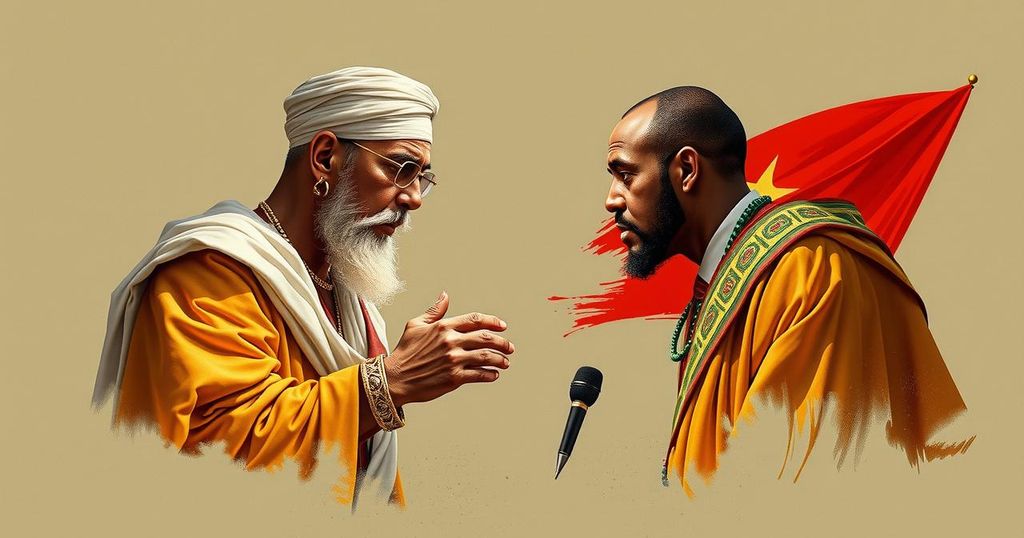Mohamed Takala rejects a meeting in Morocco involving the High Council of State and House of Representatives members, claiming lack of proper representation. He urges Libya’s Foreign Ministry to protest against informal discussions with Morocco, citing internal division and political manipulation. The Bouznika meeting aimed to form a unified government and address key issues, diverging from UN-led efforts to revitalize Libya’s political process.
Mohamed Takala, the rival Head of the High Council of State (HCS) in Libya, has formally rejected the recent meeting held in Morocco involving members of both the HCS and the House of Representatives (HoR). He contends that the participants did not possess proper authorization to represent the HCS. In light of this, he has called upon Libya’s Foreign Ministry to communicate with the Moroccan Foreign Ministry, imploring them to refrain from engaging in discussions that lack approval from the elected HCS presidency. Takala’s stance highlights concerns about internal divisions and the potential manipulation of Libya’s political landscape.
The contentious meeting in Bouznika included representatives from both legislative bodies and resulted in an agreement to establish a unified government, alongside forming committees to tackle pressing issues related to security, finance, and the economy. This endeavor stands apart from the initiatives led by the United Nations mission, which seeks to rejuvenate Libya’s political process and encourage broader participation among various political factions, ultimately aiming to guide the country towards impending elections.
The political situation in Libya has been characterized by divisions and power struggles, particularly between the High Council of State and the House of Representatives. The Bouznika meeting represents an effort to reconcile differences and form a cohesive governance structure amid ongoing conflicts. However, the legitimacy of such meetings is often disputed, as seen with Takala’s rejection of the participants’ authority. This tension illustrates the fragile nature of Libya’s political environment, where external interventions and negotiations directly impact internal politics and governance.
In summary, Mohamed Takala’s refusal to recognize the Bouznika meeting underscores significant divisions within Libya’s political institutions. His call for a formal protest emphasizes the need for coordinated efforts between the HCS and the HoR, aiming for legitimacy in political representation. These developments illustrate the complexity of Libya’s political landscape, where internal consensus is crucial for effective governance and the path towards future elections remains precarious.
Original Source: libyaobserver.ly






